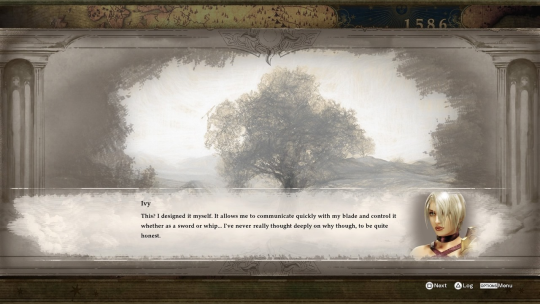“Women should be respected and accepted as they are, don’t shame them regardless of what they look like and what they wear. Do whatever you want, ladies!”
*virtual ladies in bikinis*
“Um, this is infringing on my rights. How dare you? Keep this misogynistic filth away from me.”Do you not understand the difference between a fictional character, created by men, to be seen as sexually pleasing for men in fiction and…like…REAL WOMEN who are ALIVE and are able to make CHOICES for themselves?
Like, women have some key differences with fictional depictions of women.
Ah agency, one of so many issues that bikini armor apologists work so hard to avoid understanding. Of course, it doesn’t help that there’s a trend with developers to try to have it both ways and insult their creations for being… how they created them.
– wincenworks
Thanks to @giantpurplecat we now have new and exciting insight into just how some creators assume women do choose their outfits [big image here].

“This? I designed it myself. It allows me to communicate quickly with my blade and control it whether sword or whip… I’ve never really thought deeply on why though, to be quite honest.” – Ivy in the latest Soul Calibur
Remember – testing shows that not only can Ivy not control her weapon, she basically can’t even give her opponent a brisk shove without a wardrobe malfunction or two.
Even the new game’s character creator classifies her outfit as underwear – her underwear lets her control her weapon better… so she doesn’t wear anything on top… even though it’s underwear.

Ultimately the most insulting part about the people who rush to support this kind of double standard is that they have so little respect for women that they will accept nonsense like this (or worse) as great writing.
Nine times out of ten, this particular demographic will also have nothing but contempt for real women who actually want to express their own sexuality on their own terms. (As well as contempt for the same fictional women)
– wincenworks

